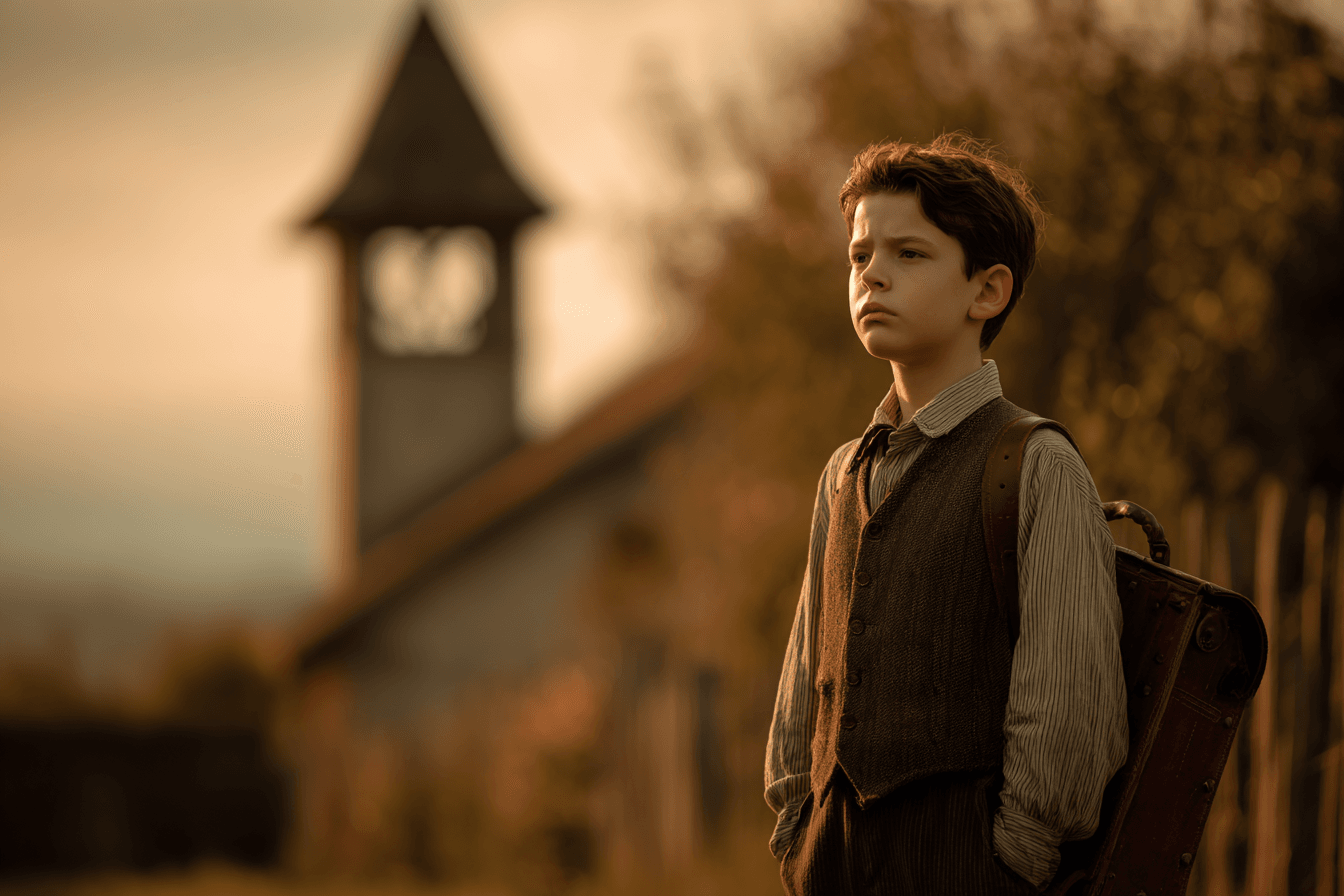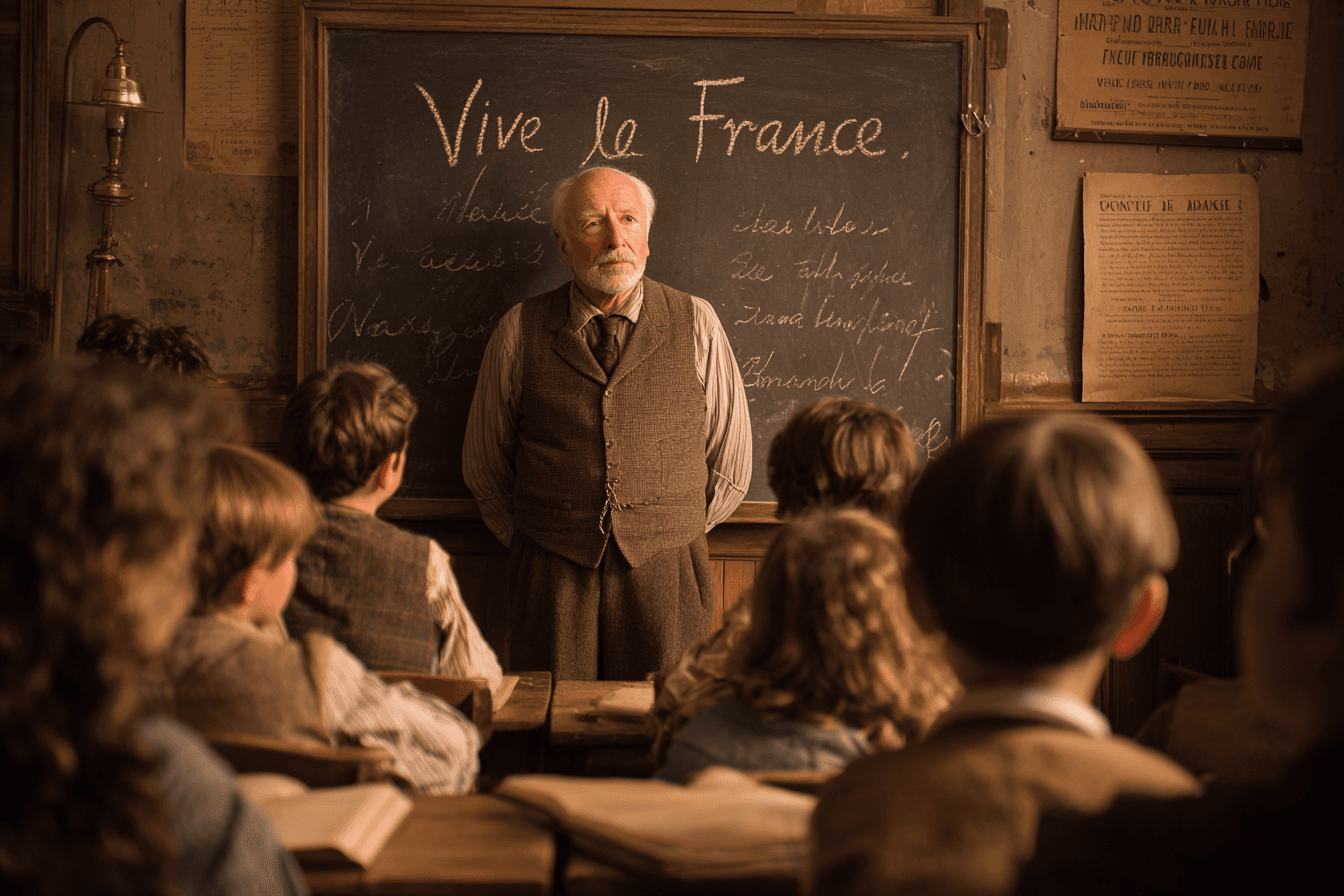Preparing for CBSE Class 12 English exams? The Last Lesson is one of the most emotionally rich and exam-relevant chapters in your Flamingo textbook. But it can be tricky to understand its deeper message, especially under pressure. That’s why we’ve created this complete guide to help you grasp the story, themes, characters, and CBSE-style questions with ease.
Whether you’re revising for exams or reading it for the first time, this summary and analysis will make the chapter come alive. From Franz’s transformation to M. Hamel’s powerful farewell, every part is explained clearly and simply.
At PlanetSpark, we help students not just memorise literature, but understand it deeply. Let’s begin.
Summary of "The Last Lesson"
Franz’s Reluctance
The story begins with Franz, a young schoolboy, who is reluctant to go to school. He fears getting punished by his teacher, M. Hamel, for not preparing his lesson on participles. On his way to school, Franz notices a crowd gathered near the bulletin board – a source of wartime announcements. He assumes more bad news has come, as it often had since the Prussian occupation began.
A Strange Quiet at School
Upon reaching school, Franz is surprised by the silence. Unlike the usual chaos, the school is calm and somber. M. Hamel is dressed in his formal clothes, typically worn on inspection or prize-giving days. Even more surprising is the presence of village elders sitting quietly on the back benches, usually empty. The atmosphere is unlike any Franz has ever seen.

Explore our Creative Writing courses to learn symbolism, narration, and plot-building.
Book a Free Demo Now!
M. Hamel’s Announcement
Soon, M. Hamel announces that this is his last lesson in French. From the next day, only German will be taught in schools, by order of the Prussian government. The news shocks Franz. He feels a deep regret for wasting time, skipping lessons, and taking his education lightly. He begins to understand the significance of learning and preserving one’s language.
The Power of Language
M. Hamel passionately explains how the French language is the most beautiful language in the world. He emphasises that when people are enslaved, their language can be their key to freedom. He urges everyone to preserve their mother tongue and to never take it for granted. The classroom is filled with emotion as both students and villagers listen with rapt attention.
Farewell to the Classroom
As the class continues, M. Hamel tries his best to teach one last time. He brings out new grammar books and tries to teach participles with clarity and dedication. Franz, for the first time, understands the lesson clearly. He realises how much he has missed by not valuing his education.
When the church clock strikes twelve and the Prussian soldiers march past the window, M. Hamel writes "Vive La France" (“Long Live France”) on the blackboard. Too choked with emotion to speak, he gestures to the class to leave. It is a silent but powerful farewell.
The Last Lesson - Character Sketches
Franz
A young and initially carefree boy, Franz matures through the course of the story. He starts out reluctant and afraid but ends up emotional and thoughtful. His transformation represents the awakening of a generation that has realised the importance of identity and education.
M. Hamel
M. Hamel is a dedicated French teacher who has served for 40 years. On his last day, he is dignified, emotional, and deeply patriotic. He represents the older generation that values culture, language, and responsibility. He blames himself as well as others for the neglect of French education.
The Villagers
The villagers, including former mayor and postmaster, attend the last lesson to show respect. Their presence highlights the shared loss of identity and a growing awareness of what they failed to protect. They represent community solidarity and patriotism.
Central Themes in "The Last Lesson"
1. Patriotism and Nationalism
The story stirs a sense of pride in one’s country and language. M. Hamel’s emotional farewell ignites a spirit of patriotism among students and villagers.
2. Language and Identity
The story emphasises that language is not just a tool for communication but a core part of cultural identity. Losing one’s language means losing a part of oneself.
3. Loss and Regret
Franz regrets not taking his lessons seriously. This theme resonates with readers who often fail to value what they have until it’s gone.
4. The Importance of Education
Education is portrayed as a powerful tool that shapes individual and national identity. The story encourages students to take their learning seriously.

Book your free trial now and let your child fall in love with language and literature.
Moral and Message of The Last Lesson
The Last Lesson is more than just a story about a schoolboy and his teacher. It is a reminder to all of us that we often realise the value of something only after it is gone.
One of the most powerful messages in the story is about the importance of language. For the people of Alsace, French was more than just a subject in school. It was a part of their culture, history, and identity. When they were forced to stop learning it, they felt like they were losing a piece of themselves. Through M. Hamel’s farewell, the story teaches us that language is not just a way to speak; it is a way to belong.
The story also urges us to value education and freedom. Franz’s change of heart reminds readers that we should not take learning for granted. Simple things like reading, writing, and speaking our language are powerful tools that connect us to our nation and heritage.
Overall, the story encourages us to protect our cultural identity, appreciate our teachers, and never underestimate the power of education and language in shaping who we are.
Key Learnings for Students
- Value your mother tongue. It carries history and identity.
- Education is a gift. Use your time wisely.
- Change is inevitable; be prepared to face it with knowledge and resilience.
- Even ordinary days can become historically significant.
Important Questions and Answers from The Last Lesson
1. What is the significance of the title "The Last Lesson"?
Answer: The title "The Last Lesson" carries emotional and symbolic weight. It refers to the final French lesson taught by M. Hamel in the village school of Alsace, marking the end of an era. After the Franco-Prussian War, the Prussian authorities had ordered that German be taught in schools instead of French. The title signifies not only the literal last class but also the loss of freedom, culture, and identity that the French people in Alsace experienced under foreign rule.
2. Why did the villagers attend the class?
Answer: The villagers, including the former mayor, postmaster, and others, came to attend the last French lesson out of respect for M. Hamel and to express their sorrow for neglecting their language and education. Their presence reflects a collective realisation of what they had lost. They wanted to honour the teacher who had served for 40 years and silently protest the imposition of a foreign language, which symbolised the loss of national identity.
3. How did Franz’s attitude toward school change?
Answer: Franz begins the story as a reluctant student who fears punishment for not preparing his lesson. However, upon learning that this would be the last French lesson, he undergoes a transformation. He becomes attentive, emotional, and regretful. He listens closely, realises the importance of education, and feels ashamed for taking his studies lightly. This change highlights the theme of taking things for granted until they are lost.
4. What emotions did M. Hamel express in his last lesson?
Answer: M. Hamel expresses a mixture of pride, sorrow, and frustration. He is proud of his language and his role as a teacher but is deeply saddened by the fact that he must leave and that French will no longer be taught. He regrets that both he and the villagers neglected the importance of education. His restrained emotions and final gesture – writing "Vive La France" on the blackboard convey a silent yet powerful message of resistance and patriotism.
5. What role does language play in this story?
Answer: Language is portrayed as more than just a medium of communication. In "The Last Lesson," it stands as a symbol of national identity, culture, and freedom. M. Hamel emphasises that as long as people hold on to their language, they hold the key to their liberation. Losing the right to learn and speak one’s language is akin to losing one's selfhood. The story encourages readers to value and preserve their mother tongue.
Literary Devices Used in The Last Lesson
1. First-person narration: The story is told from the perspective of Franz, which helps readers connect personally with his transformation and the emotions of the day.
2. Imagery: Descriptions of the quiet classroom, M. Hamel’s appearance, and the village square create vivid mental pictures that enhance the emotional impact.
3. Symbolism:
- “Vive La France” symbolises patriotism and silent resistance.
- The blackboard represents the lasting impression of the final lesson.
- The classroom silence reflects respect, regret, and the gravity of the moment.
The Last Lesson: In a Nutshell
Bullet Point Recap for Revision
- Written by Alphonse Daudet, set in Alsace during Franco-Prussian War aftermath.
- France loses to Prussia; German replaces French in schools.
- Franz, a student, arrives late and is surprised by the quiet, respectful classroom.
- M. Hamel announces it is the last French lesson he will teach.
- Villagers attend to pay tribute and express regret.
- Franz feels ashamed and begins to appreciate his language.
- M. Hamel speaks passionately about the French language.
- The lesson ends emotionally; M. Hamel writes “Vive La France” on the board.

PlanetSpark’s Creative Writing Programs: Helping Children Value Language and Expression
The Last Lesson reminds us that language is not just a subject in school, it’s a part of who we are. At PlanetSpark, we nurture this understanding through our creative writing programs that go beyond grammar and vocabulary.
Here’s how we help young learners grow:
Live Classes with Expert Teachers: Children are guided by passionate educators who make every session interactive, supportive, and rich in learning.
Real-World Writing Themes: From storytelling to essays about identity, freedom, and culture students explore meaningful topics that build empathy and insight.
Skill-Based Learning Paths: Focus on descriptive writing, character-building, symbolic thinking, and more aligned with age and ability.
Regular Feedback and Peer Review: Kids learn how to revise their work and understand how words can shape thought, identity, and even history.
Engaging Assignments and Fun Writing Projects: Students create their own stories, poems, and reflections, developing confidence in both personal and academic writing.
PlanetSpark helps children find their voice and express their thoughts with clarity and confidence just like M. Hamel wanted his students to do. Whether your child is preparing for school exams or simply enjoys storytelling, we make writing purposeful and powerful.
Conclusion
The Last Lesson is more than just a story about a French class, it’s a powerful reminder of how easily we take things like language, education, and freedom for granted. Through the eyes of young Franz and the heartfelt farewell by M. Hamel, we learn that losing the right to learn your own language can feel like losing a part of your identity.
For students, this chapter teaches the importance of staying present, valuing what you have, and learning with sincerity. Every lesson, no matter how small, contributes to who you become.
So the next time you feel bored in class or unmotivated to study grammar, remember the people in Alsace who lost the right to even attend a lesson in their own language. Use this story to reflect, appreciate, and grow, both as a student and as a responsible individual.
FAQs on The Last Lesson
Q1. Who is the author of The Last Lesson?
A: The Last Lesson is written by Alphonse Daudet, a French writer known for his short stories and novels.
Q2. Why was the last lesson so emotional for Franz and the villagers?
A: It marked the end of their right to learn the French language. The villagers realised too late how important their language was, and Franz regretted not valuing school earlier.
Q3. What historical event is behind the story?
A: The story is set during the aftermath of the Franco-Prussian War (1870–71), when Prussia took control of Alsace and Lorraine and banned the teaching of French.
Q4. What is the main theme of the chapter?
A: The importance of language, patriotism, and education. It shows how losing your language can feel like losing your freedom.
Q5. What does "Vive La France" mean and why is it important?
A: It means “Long live France.” M. Hamel writes it on the blackboard at the end of the class as a symbol of love for his country and resistance against the ban on the French language.
Q6. What changes do we see in Franz during the story?
A: Franz transforms from a lazy, careless student to someone who appreciates the value of learning and feels deeply connected to his language and identity.
Q7. Is this chapter relevant to students today?
A: Yes. It reminds students to value their education and heritage before it’s too late, and to take pride in their language and culture.


